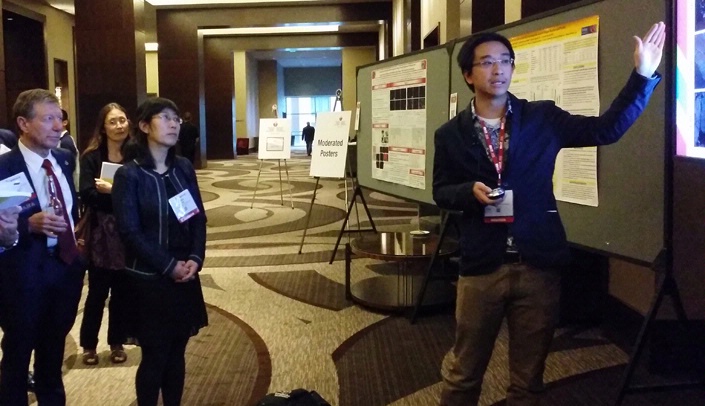A UNMC M.D., Ph.D. student was the lead author of a study which found that restoring blood flow to the legs of patients with peripheral artery disease (PAD) may stop the progression of scarring in their leg muscles.
Results of the preliminary research were presented on May 5 at the American Heart Association’s Arteriosclerosis, Thrombosis and Vascular Biology/Peripheral Vascular Disease 2016 Scientific Sessions in Nashville, Tenn.
PAD causes pain and fatigue while walking due to poor blood circulation in arteries that supply blood to the limbs. The decreased blood flow can lead to substantial scarring and damage in leg muscles.
There are currently no available treatments once the scarring has occurred. Supervised exercise therapy and revascularization procedures (which reopen or bypass blockages in the blood vessels) may help PAD patients walk further and longer, but it is not known if these treatments affect the scarring process.
Duy Ha, a doctoral candidate in cellular and integrative physiology, was the lead author on the study.
Co-authors on the study from UNMC included George Casale, Ph.D., associate professor, surgery-general surgery, and Iraklis Pipinos, M.D., professor, surgery-general surgery.
The study is funded by the National Heart Lung and Blood Institute, National Institute of Aging, and the Charles and Mary Heider Fund for Excellence in Vascular Surgery. The VA Nebraska and Western Iowa Health Care System provided additional support.
“Duy Ha has been an outstanding and highly productive graduate student,” said Irving Zucker, Ph.D., professor and chair of the UNMC Department of Cellular and Integrative Physiology. “His research was a blend of clinical and basic science and shows the value of clinical and basic science departments co-mentoring graduate students.”
Ha won travel awards from the Society for Vascular Surgery and the Atherosclerosis Thrombosis and Vascular Biology Council of the American Heart Association to allow him to share this work at the conference.
He was one of only six researchers who were selected to give a moderated poster presentation in which he gave an oral presentation on the poster in front of a crowd of researchers.
